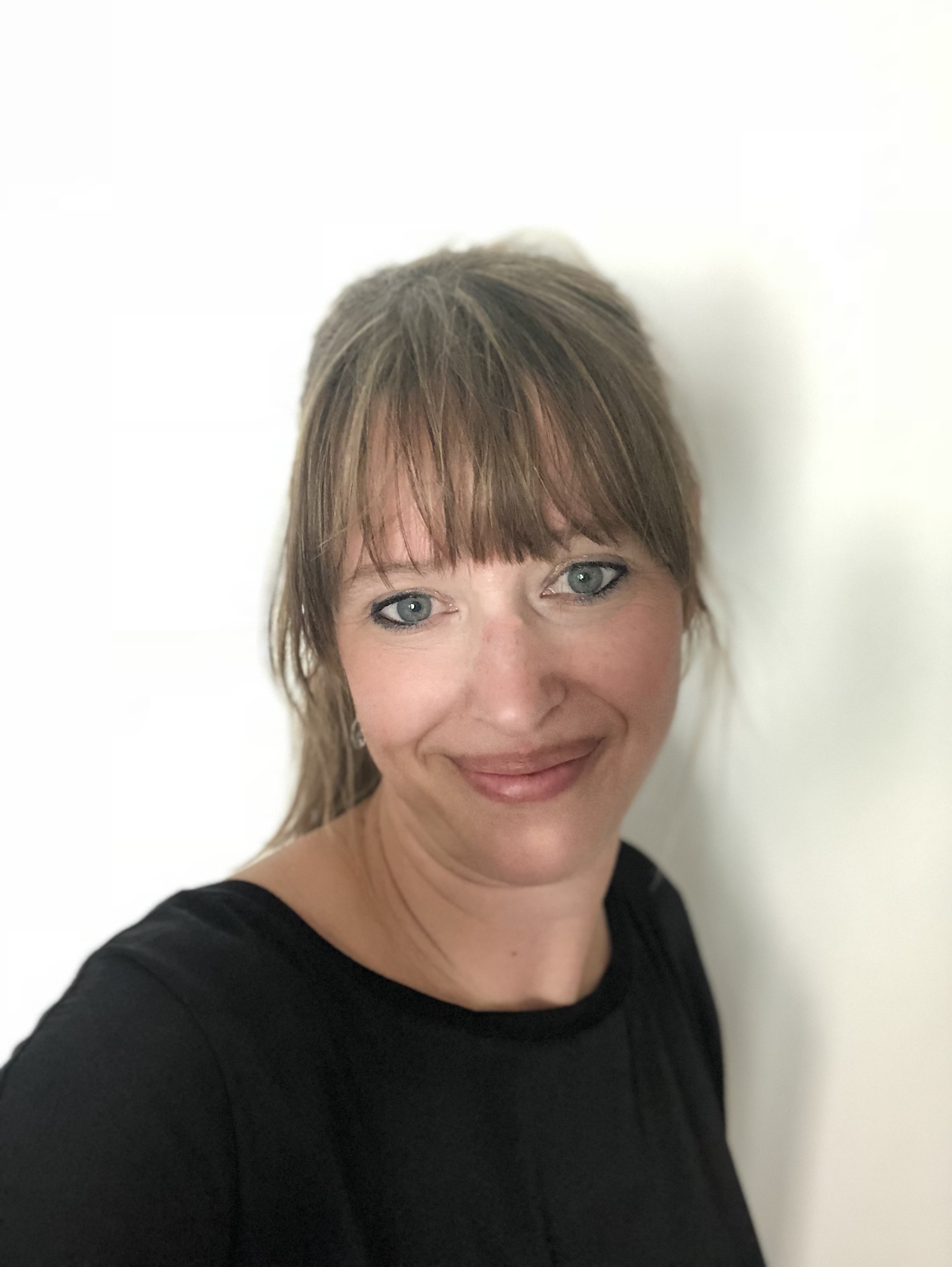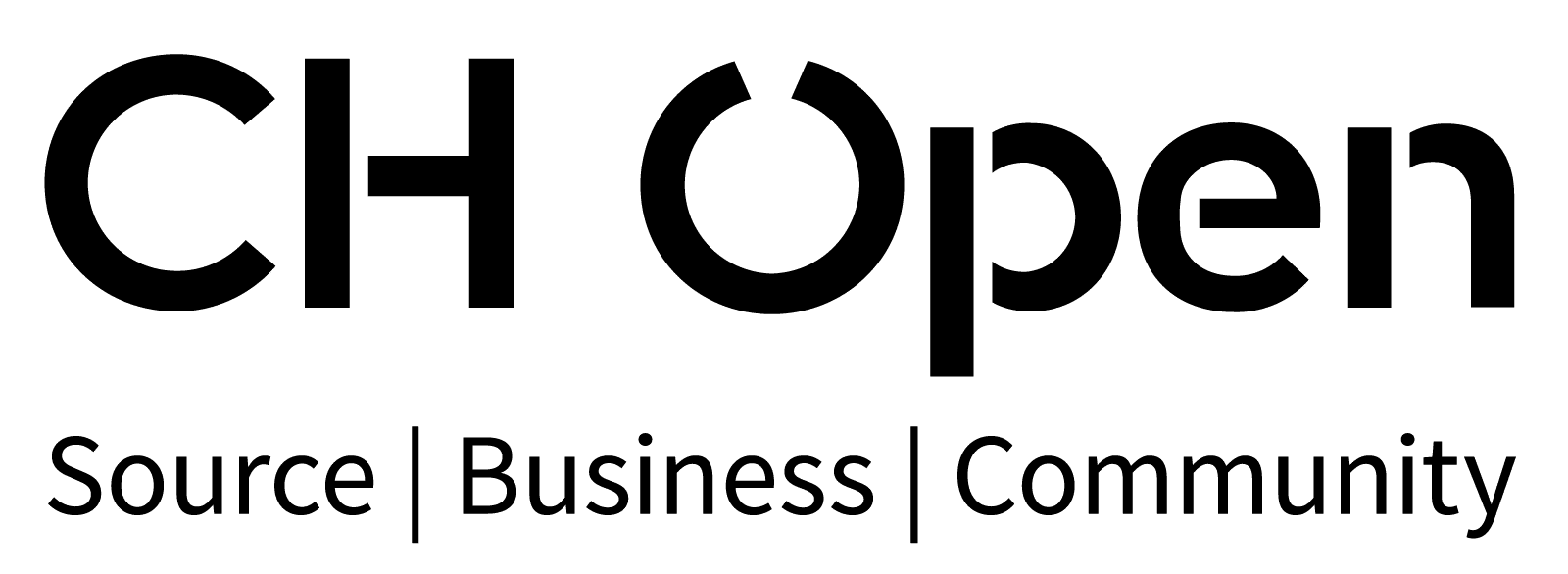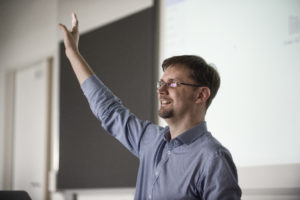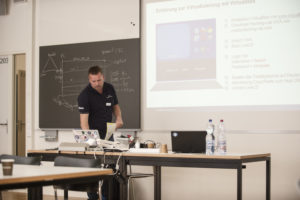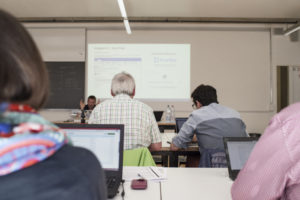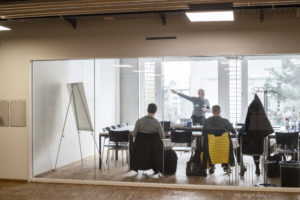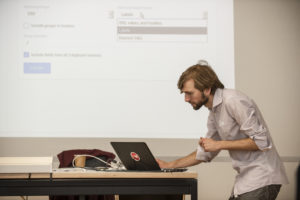P8-Track (swissuniversities)
Zusätzlich findet am Open Education Day ein grösserer auf die Tertiärstufe ausgerichteter Teil zu "Digital Skills, OER und Community Building" (Projekte häufig aus swissuniversities P8). Dieser besteht vormittags aus maximal 90-minütigen Workshops, sowie nachmittags aus zwei Präsentationsblöcken, welche in der Regel 45 Minuten dauern.
 Workshops Vormittag / Le matin à 11.00h - finden parallel statt / en parallèle (90min)
Workshops Vormittag / Le matin à 11.00h - finden parallel statt / en parallèle (90min)
Towards identifying competencies for Open Scholars across the Mediterranean, Barbara Class, Université de Genève
Zum Thema
Within the OpenMedScholars' project (https://tecfa.unige.ch/proj/OpenScholars), supported by the Leading House MENA, we have identified key competencies for Open Scholars through a review of literature and current practices. During the workshop, we would like to discuss these competencies to take practitioners' and experts' feedback in an approach based on Delphi technique. Participants will be invited to vote and we will discuss the outcomes of the votes in a participatory manner.
Zum Referent
Barbara Class, PhD, est enseignante chercheuse à l'Université de Genève, Faculté de Psychologie et des Sciences de l'Education, TECFA et ERDIE, et travaille sur la thématique de l'Open Education depuis plusieurs années.
Dalila Bebbouchi, Docteur en sciences de l'éducation, chargée de l'information scientifique et technique conseiller et responsable du service multimédia au Centre de recherche sur l'information scientifique et technique - CERIST, Alger (Algérie)
Khalid Berrada est professeur chercheur à l'Université Mohammed V de Rabat. Il est expert marocain en réforme de l'enseignement supérieur et titulaire de la chaire ICESCO sur l'éducation ouverte. Il est impliqué dans diverses recherches scientifiques autour de la science et de l'éducation ouverte et des technologies éducatives.
Dr.Ing. Lilia Cheniti, Maître de conférences (HdR), Université de Sousse, Chercheure en Informatique et Technologies éducatives. Coordinatrice Cellule Innovation pédagogique et Numérique et Présidente Commission Régionale des Experts Économiques et Scientifiques (CREES) - AUF Afrique du Nord.
Dr. Ghada El Khayat est professeure titulaire et directrice du Département des systèmes d'information et d’informatique de la Faculté de Commerce de l'Université d'Alexandrie. Elle est la directrice fondatrice du centre «Innovation Pédagogique et Apprentissage à Distance-ADIP», Université d'Alexandrie. Elle est la présidente du Conseil Scientifique de l’Agence Universitaire de la Francophonie.
Dr. Souhad SHLAKA, Professeure à la Faculté des Sciences de Rabat, Université Mohammed V, spécialiste en ingénierie pédagogique. Concepteur et formateur de cours en ligne.
Zielgruppe:
Higher Education scholars knowledgeable of Open Science, Open Education, Open Educational Resources and other forms of Opens, e.g. Open Source software.
Referentenfolien: Barbara Class-OpenMedScholars

Chancen von KI-basierten Tools nutzen!, Kerstin Denecke, Berner Fachhochschule
Zum Thema
Werkzeuge, die auf Künstlicher Intelligenz basieren (KI-Tools), finden zunehmend Einsatz im Alltag und machen auch vor Bildungseinrichtungen nicht halt. Ziel dieses Workshops ist es, Lehrpersonen mögliche Anwendungen von KI-Tools zu demonstrieren und gemeinsam weitere Anwendungsszenarien, die den Bedürfnissen der Teilnehmenden entsprechen, zu entwickeln. Für die Anwendungsszenarien werden zudem noch benötigte Fähigkeiten seitens Lehrpersonal und Schüler:innen / Studierenden zusammengetragen.
Zur Referentin
Prof. Dr. Kerstin Denecke, Robin Glauser und Daniel Reichenpfader sind an der Berner Fachhochschule am Departement Technik und Informatik tätig. Im Rahmen des BeLearn-Projektes «Bildung 6.0» beschäftigen sie sich mit dem richtigen Einsatz von KI-basierten Werkzeugen in der Hochschullehre.
Zielgruppe:
Lehrpersonen, Dozierende, Entscheidungsträger in Schulen
Referentenunterlagen: Chancen_von_KI-basierten_Tools_nutzen-Denecke_Glauser_Reichenpfader

Suchen und Finden – ‘alte Schule neu gedacht’, Michele Notari und Sandrine Favre, PH Bern (75min)
Zum Thema
Im Rahmen der Swiss Digital Skills Academy gestaltet die PHBern einen Kurs über «Information Retrieval and Management» für Lehrpersonen und Dozierende. Ein erster Prototyp des Kurses ist bereits auf der offenen Umgebung GRAASP verfügbar. In diesem Workshop laden wir die Teilnehmer:innen ein, die GRAASP-Umgebung kennenzulernen und den ersten Prototyp auszuprobieren. Der Workshop endet mit einer offenen Diskussionsrunde über das pädagogische Design des Prototyps. Der Prototyp geht noch nicht in KI gestützte Suchstrategien ein. In der Diskussion werden wir dieses Thema ansprechen.
Zum Referent
Prof. Dr. Michele Notari ist ein Bildungsforscher und Experte für Computer Supported Collaborative Learning (CSCL). Er ist insbesondere für seine Arbeit im Bereich Open Educational Resources (OER) bekannt und hat zahlreiche Beiträge zu diesem Thema veröffentlicht. Er lehrt und forscht an der Pädagogischen Hochschule Bern und an der Hong Kong Universität.
Sandrine Favre arbeitet derzeit als wissenschaftliche Mitarbeiterin an der Pädagogischen Hochschule in Bern. Zurzeit ist sie Doktorandin an der Universität Genf.
Zielgruppe:
Angehende Lehrpersonen, Lehrpersonen, Dozierende, Interessierte

Digital Skills bei Neustudierenden - Reflexionen und Realisierungen, Matthias Schindler, Pädagogische Hochschule FHNW
Zum Thema
Im Workshop wird das Themenfeld der Studierfähigkeit Neustudierender hinsichtlich der Vermittlung & Stärkung von Digital/Future Skills behandelt. Wie kann Medienkompetenz – mehr als Medienanwendungskompetenz – insbesondere zum Studienstart aufgebaut und gefördert werden & warum ist das notwendig? Welche Modelle/Aspekte bieten einen praxisnahen und studienrelevanten Zugang? Welche Praxiserkenntnisse spielen hierbei eine Rolle? Ziel ist, Fragen, Anliegen & Ideen gemeinsam zu diskutieren und zu reflektieren.
Zum Referent
Matthias Schindler ist Wissenschaftlicher Mitarbeiter an der Fachstelle Digitales Lehren und Lernen (FDL) der Pädagogischen Hochschule FHNW und ist mitverantwortlich für das Angebot "DigiLearn4Students". Daneben promoviert er über Open Education Practices an der Technischen Universität München. Er ist Gymnasiallehrer und studierte Germanistik sowie Erziehungswissenschaft an der Universität Heidelberg.
Zielgruppe:
Dozierende, insbesondere im Grundstudium mit Erstsemestlern

 Presentations #1 Nachmittag / L'après-midi #1 à 14.00h - finden parallel statt / en parallèle (45min)
Presentations #1 Nachmittag / L'après-midi #1 à 14.00h - finden parallel statt / en parallèle (45min)
Let’s Make PDFs Accessible for All: A Survey on PDF-Accessibility in Switzerland, Inés Engler, UZH (60min)
Zum Thema
This presentation introduces the topic of accessible PDF documents, as well as the ongoing results of a survey on the accessibility of scientific PDF documents for people with visual impairments in Switzerland. The talk will address the two questions:
1) How accessible are scientific PDFs in Swiss academic archives and repositories?
2) To what extent are managers of Swiss online scientific archives and repositories aware of accessibility issues? Additionally, recommendations for online repositories will be provided to raise awareness among relevant stakeholders.
Open Educational Resources (OER) are freely accessible and open-licensed educational materials that anyone can use for teaching, learning, research, and other purposes. Scientific articles can serve as OERs and are very often available in PDF format. Given the importance of the PDF format in higher education and research, it is critical that this format is accessible to users with visual impairments. Many people with visual impairments use screen-readers to read accessible PDF documents aloud. An accessible PDF document means that a visually impaired user can read and navigate the document properly.
The 2006 United Nations Convention on the Rights of Persons with Disabilities (UNCRPD) institutes specific accessibility goals to ensure equal rights and to protect the integrity of people with disabilities internationally. In 2004, Switzerland enacted the “Disability Discrimination Act” (DDA), which introduced guidelines for the general accessibility conditions of public institutions and transport, residential buildings, workspaces, as well as research, education and educational facilities. Despite these efforts to ensure equal rights and opportunities for people with disabilities, many obstacles are still encountered, specifically in higher education. Swiss universities strive to implement these guidelines and laws, but are yet to fully enforce the desired standards.
To support these efforts, we analyzed the accessibility of PDF documents within a selection of online scientific archives and repositories in Switzerland, such as ZORA and BORIS. To be considered “accessible”, PDFs had to meet two minimal accessibility requirements: they had to use tags and have a hierarchical heading structure. These characteristics are essential for visually impaired screen-reader users to read the PDF’s content and navigate within the document. Additionally, interviews were conducted with the managers of Swiss online scientific archives and repositories to determine their awareness of the issue at hand.
The presentation will end with a demo of a screen-reader in action, navigating and reading an accessible, as well as an inaccessible PDF document aloud.
Index terms: accessibility, education, online repositories, visual impairment, survey, accessible science, accessible scientific PDFs
Zum Referent
Inés Engler is a graduate student at the University of Zurich. In her role as a scientific assisstant for Prof. Dr. Darvishy, professor for applied informatics at the ZHAW, she has specialised in the field of accessible teaching materials and accessible research. Especially looking at the the accessibility of PDF documents, she has most recently conducted a survey on the state of the accessibility of Swiss online repositories.
Zielgruppe:
People involved in creating and managing accessible open educational resources, so everyone from assistants and students to professors and researchers.
Referentenfolien: Presentation_PDF_Accessibility

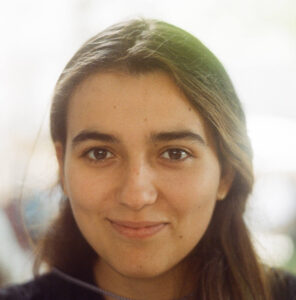
Do we need a Swiss OER Community of Teachers in Higher Education?, Nicole Krüger, ZHAW Hochschulbibliothek (30-40min)
Zum Thema
Compared to the movement of “open access” for academic publications, which is just a few years older than the OER movement [1, 2], the publication of OER still does not have a strong structural or financial support in the Swiss HEI landscape. However, the discussion on OER made a great leap after the covid 19 pandemics. Today, many higher education institutions are creating OER policies, OER repositories are being built, and a network is evolving amongst the OER professionals of HEI in Switzerland.
At ZHAW, the creation of OER and a change towards a culture of sharing, is strongly supported by the exchange in the ZHAW OER community. Here, structural needs and practical questions around OER are communicated in a closed environment. Another example of how the creation of OER can be supported, can be seen for example in Germany, where funding lines and policy documents as well as federal OER repositories were set up successfully during the last few years.
After the presentation of good practice examples for the structural support for OER, I want to raise the question, if we need a Swiss OER community in HEI. Do we need a community or a panel, discussing the necessity of quality assurance measures of materials (like peer review) for teaching materials? – Do we need higher visibility and recognition of teaching activities in the career development at HEI through the publication of OER, or funding lines for third party funding for OER teaching projects at universities?
[1] First mention of OER in 2002 https://unesdoc.unesco.org/ark:/48223/pf0000128515
[2] An early milestone of open access was the Budapest Open Access Initiative in 2001 https://www.budapestopenaccessinitiative.org/
Zum Referent
Nicole Krüger is a librarian and M.A. in European philosophy. She is the Team Lead of Open Educational Resources at ZHAW Zurich University of Applied Sciences, University Library, Education Services and co-chair of the LIBER Educational Resources Working Group.
Zielgruppe:
Lehrpersonen, OER-Professionals
Refrentenfolien: Open-Education-Day-2023_krueger_do-we-need-an-oer-community-of-teachers-in-HEI

Quality criteria for online self-guided adult education platforms, Alexander Koch & Sandrine Favre, HEP Fribourg/PHBern
Zum Thema
We present a perspective on instructional quality of self-guided e-learning modules for in-service teachers. Classroom-based guidelines were translated into fully digital environments and integrate concepts of teaching quality and epistemic approaches. We found indicators for five components of a digital pedagogical design and evaluated them in existing digital learning modules. The components define quality in digital self-learning environments and are empirically related to learning and motivation.
Zum Referent
Alexander Koch has been an empirical pedagogical researcher at the Universities of Bochum, Tübingen, and Basel with a focus on STEM education and digitalization. He is currently an associated Professor at the University of Teacher Education Fribourg.
Sandrine Favre is currently working as a research assistant at the University of Teacher Education in Bern. She is currently a PhD student at the University of Geneva.
Zielgruppe:
Zielgruppe sind Interessierte an selbstständigen Weiterbildungen, Entwickler:innen, Weiterbildner:innen

Open Access im Studienalltag, Regula Zwicky, UZH Universitätsbibliothek
Zum Thema
Fragen zum Umgang mit verschiedenen Manuskriptversionen, Paywalls, Lizenzen und Selbstarchivierung zeigen, dass «Open Access» auch Studierende betrifft. Im Rahmen eines Teaching Tools an der UZH wurden Foliensätze entworfen, die Dozierende in ihren Lehrveranstaltungen in wenigen Minuten einbauen und Aspekte rund um «Open Access» thematisieren können. Erweiterungen der Foliensätze zu anderen Bereichen von «Open Science» stehen noch an und können diskutiert werden.
Zum Referent
Ursprünglich Religionswissenschaftlerin befasse ich mich seit über 10 Jahren mit dem Potential und Herausforderungen digitaler Lehre. Derzeit bin ich im Team Open Science Services an der Universitätsbibliothek Zürich tätig.
Zielgruppe:
Studierende und Dozierende an Hochschulen und Universitäten
Referentenunterlagen: OpenAccess_im_Studierendenalltag-Regula_Zwicky

 Presentations #2 Nachmittag / L'après-midi #2 à 14.45h - finden parallel statt / en parallèle (45min)
Presentations #2 Nachmittag / L'après-midi #2 à 14.45h - finden parallel statt / en parallèle (45min)
Presenting the "European Network of Open Education Librarians", Paola Corti, SPARC Europe
Zum Thema
The European Network of Open Education Librarians (ENOEL) is a community of academics across Europe who aims to recognize libraries in Higher Education as key trusted partners in making Europe’s educational resources and practices open and accessible to all. Within the presentation, I would like to share SPARC Europe / ENOEL's strategy and activities and exchange with Swiss colleagues on best practices and challenges.
Zum Referent
Paola Corti is the Open Education Community Manager of the European Network of Open Education Librarians (ENOEL); she supports librarians in taking action to implement the UNESCO OER Recommendation. She also works part of her time at Politecnico di Milano, Italy, as a project manager and instructional designer; she manages international projects, MOOCs design and development, and professional development courses for Faculty and Researchers, mainly on Open Education and innovative pedagogies. Paola has worked in distance learning since 1998 and passionately advocates for Open Education (OE). She helps bridge the gap between educators and librarians in achieving more open access to education.
Zielgruppe:
Librarians, academics, decision makers
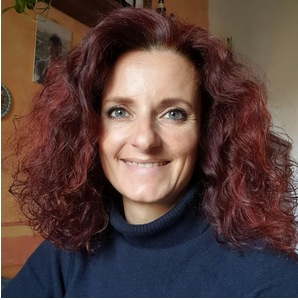
Education for sustainable development: Teaching and learning in tertiary education, Juliette Torabian, University of Fribourg
Zum Thema
Higher education institutions are considered pivotal in realising sustainable development through research and innovation,. However, while early childhood and primary education curriculum has embraced education for sustainable development, this has not been equally the case in teaching and learning processes and program content at tertiary level- at least not as coherently across all countries and all fields of study. In this presentation, I will share practical insights from the two universities where I created and offered a module on education for sustainable development. I will share main topics of the module but also my Pedagogical practice.
Zum Referent
I am a Postdoctoral Researcher in sociology of education (University of Luxembourg), a senior specialist in international development and education, and the deputy leader of the EU-FUNDED project PIONEERED.
Zielgruppe:
Teachers, lecturers, policy makers, parents, students

OER Policy - Wieso, weshalb, warum?, Maaike Kuurstra, PH Luzern
Zum Thema
Das Schweizer Hochschullandschaft ist divers mit ihren kantonalen Universitäten und viele unterschiedliche Hochschulen. Die Haltung dieser Institutionen bezüglich das Postulat Open Educational Resources ist genauso unterschiedlich. Obwohl es keinen Landesweite Richtlinien für OER gibt, wird das Thema schon von der Institution in unterschiedliche Projekte und Aktivitäten gefördert.
«Openness» ist ein aktuelles Thema, wobei Begriffe wie «Open Access» und «Open Science» aktuell in Wissenschaft und Hochschulen oft aufgegriffen werden. Auch das Postulat OER bekommt immer mehr Aufmerksamkeit, trotzdem haben die meiste Institutionen keine eigene OER Policy vorhanden und das wird auch nicht immer angestrebt.
In diesen Beitrag werden Themen und Fragen, die auftreten bezüglich eine OER Policy für Hochschulen, betrachtet. Welche Punkte werden in so eine Policy aufgenommen, wo gibt es Diskussionen oder Herausforderungen, welche Lösungen gibt es und wie werden die in unterschiedliche Policies betrachtet?
Leitlinie sind drei Fragen, die sich stellen, falls eine Policy verwirklicht wird. Wie sichert man Qualität von den erstellten OER? Wie kann man rechtlichen Aspekten gewährleisten? Und gibt es Anreize, um das Arbeiten mit OER zu fördern?
Eingeladen sind Mitarbeiter an Hochschulen, Wissenschaftler*innen, Lehrenden und alle die sich interessieren für das Verankern von OER in Institutionen.
Zum Referent
Maaike Kuurstra arbeitet als wissenschaftliche Mitarbeiterin seit 2020 an der Pädagogische Hochschule Luzern, beim Zentrum für Hochschuldidaktik (ZHD). Sie beteiligt sich jährlich als Mitorganisatorin an der Open Education Week der Campus Luzern, hat der OER Konferenz 2021 in Luzern mit organisiert und ist Mitglied der Schweizer Special Interest Group (SIG) OER.
Zielgruppe:
Mitarbeiter an Hochschulen, Wissenschaftler*innen, Lehrenden und alle die sich interessieren für das Verankern von OER in Institutionen.
Referentenfolien: OER_Policy_Wieso_weshalb_warum-Maaike_Kuurstra
